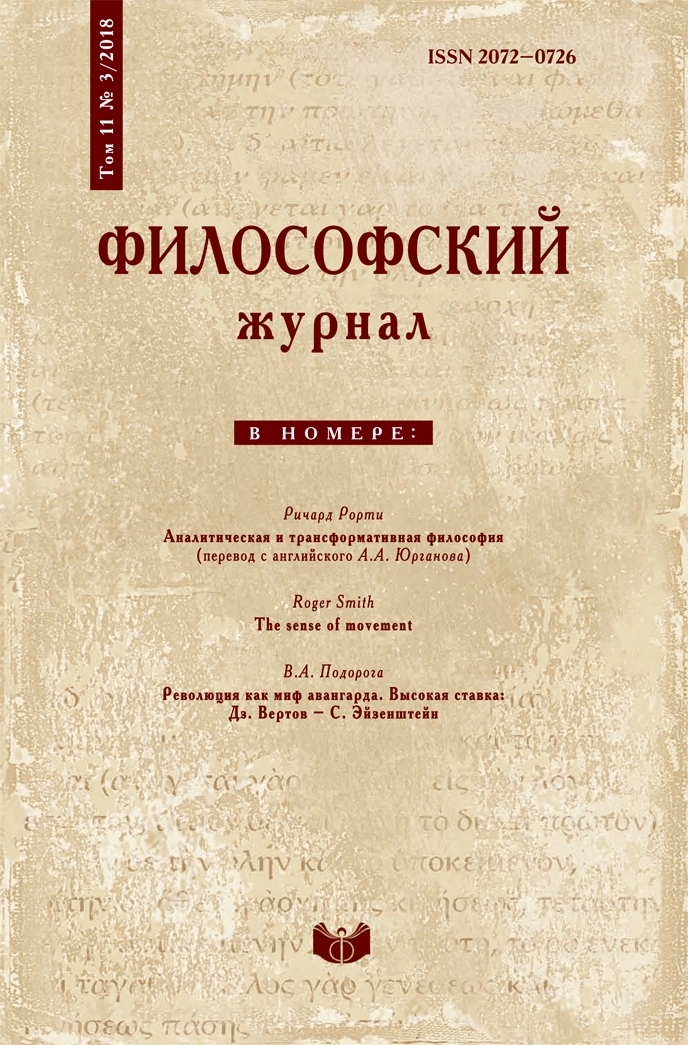Elucidation as conversation: hermeneutics in Das abendländische Gespräch of Martin Heidegger
DOI:
https://doi.org/10.21146/2072-0726-2018-11-3-106-120Keywords:
Hölderlin, Heidegger, hermeneutics, elucidation, overcoming of metaphysics, dialogue, language of landscape, articulation of poetic language, linguistic space and time, embodied languageAbstract
The present article is a close reading, with particular attention to methodology, of Das abendländische Gespräch (“Dialogue in Occidental Manner”), a 1946–1948 text of Martin Heidegger, still relatively little known in Russia. The dialogue between philosophical thinking and poetry that takes place in Heidegger’s later works forms an essential part of his project of ‘overcoming of metaphysics’ in the quest for 'the other beginning' of history and philosophy. According to Heidegger, Dichtung, or poetic creation (in the first place, the poetry of Friedrich Hölderlin), is, for language, a more authentic mode of existence than either the ordinary language or the languages of science and metaphysics. Viewed from this standpoint, the Dialogue provides a valuable source for the examination of Heidegger’s hermeneutic ideas which can be shown to originate in a distinctive understanding of the nature of poetic speech as a ‘protolanguage’. For Heidegger, the main goal of interpretation is to reveal the special time and space where the ‘existence’ of poetic word takes place. This goal is here analyzed under two crucial aspects, i.e. the fusion of language with landscape occurring in a poetic text and the performative interpretation that endows the word with ‘body’. This allows to explicate some of Heidegger’s peculiar methodological requirements for the interpreter, such as letting the poetic word itself speak, adapting oneself to its swinging motion, and restoring the word to its semantic and sonorous fullness. It can further be demonstrated that, in this case, the choice of a dialogical form, otherwise so rare in Heidegger, serves the purposes of his hermeneutic strategy.






